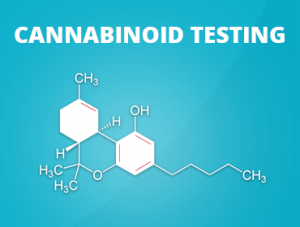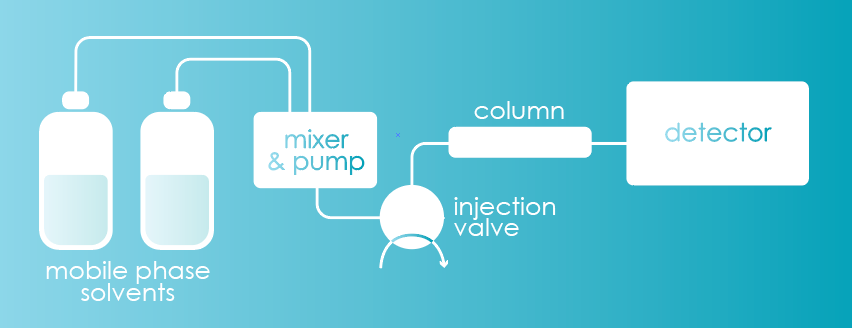 Using state-of-the-art instrumentation and advanced methodologies, Modern Canna Science provides accurate cannabis potency testing for growers, dispensaries, caregivers and patients. Cannabinoid profiling is the primary lens through which processors, physicians and patients can understand and assess the true potency of medical cannabis products. Cannabinoid profile results help doctors and patients more accurately determine dosage amounts based on the levels and concentration of active cannabinoid compounds.
Using state-of-the-art instrumentation and advanced methodologies, Modern Canna Science provides accurate cannabis potency testing for growers, dispensaries, caregivers and patients. Cannabinoid profiling is the primary lens through which processors, physicians and patients can understand and assess the true potency of medical cannabis products. Cannabinoid profile results help doctors and patients more accurately determine dosage amounts based on the levels and concentration of active cannabinoid compounds.
Cannabinoid testing
More than 70 cannabinoid compounds have been identified by researchers, and many of these offer proven medicinal benefits for patients diagnosed with cancer, HIV, Parkinson’s disease, and dozens of other illnesses. Cannabinoids have been shown to help with pain and nausea relief, preventing nervous system degeneration, reducing seizures and convulsions, lowering blood glucose levels, and inhibiting bacterial and tumor cell growth. Although cannabidiol (CBD) and tetrahydrocannabidiol (THC) are two of the most well-known cannabinoids, our testing includes an in-depth analyses of the most common compounds found in cannabis, including THCA, CBN, CBDA, and CBC.
Of all the cannabinoids, THC (delta9-tetrahydrocannabinol) has the most significant influence on “potency” and the psychotropic effects produced by marijuana. Another cannabinoid, CBD, has powerful anti-inflammatory, pain-relieving and anti-anxiety properties. As such, CBD potency levels are equally relevant when testing cannabis products such as extracts, edibles, oils, concentrates, tinctures and flowers.
A cannabinoid profile identifies and quantifies the type and amount of psychoactive compounds in medical marijuana products, allowing consumers to make informed decisions about their treatments. Modern Canna Science uses high performance liquid chromatography (HPLC) technology to measure cannabinoid potency and concentration, providing reliable data about any edible or cannabis product. Most patients have distinct preferences for certain THC/CBD ratios, which underscores the importance of exact CBD cannabinoid and THC cannabinoid testing.
Cannabis potency analysis
Whether you are a state-regulated distributor or a medical marijuana patient, it’s important to have a solid understanding of the cannabinoid potency of the products you are selling or ingesting. For many consumers, it all comes down to personal preference and medicinal needs, as some people are seeking specific symptom relief.
THC is renowned for its analgesic properties, as well its ability to help alleviate stress disorders, insomnia and nausea. A THC potency test is extremely helpful for individuals who want to confirm the tetrahydrocannabinol content of their medicine. While environment, genetics and selective breeding can enhance THC concentrations, most cannabis cultivars – like Kosher Kush– will top out at around 20-27 percent, while average THC levels hover around 14-16 percent.

At Modern Canna Science, we perform cannabis potency analysis using High Pressure Liquid Chromatography (HPLC) technology. Samples are dried, ground and weighed before chemical analysis is performed by our skilled laboratory technicians.
After quantifying cannabinoids through precise liquid chromatography, we utilize a photodiode array detector for evaluating potency.
Our standard cannabis potency analysis tests for:
- THC – Delta-9-Tetrahydrocannabinol Carboxylic Acid, offers pain relief and general sedative effects
- CBD – Cannabidiol, helps with anxiety, inflammation, stress and pain
- CBDa– Cannibidol Acid, anti-bacterial and anti-emetic
- THCa– Tetrahydrocannabinol Acid, non-psychoactive, aids with sleep and nausea
- Δ8-THC – Delta-8-Tetrahydrocannabinol, helps to stimulate appetite
- Δ9-THC – Delta-9-Tetrahydrocannabinol, praised for its pain-relieving effects
- CBN – Cannabinol, known for its sedative properties
CBD dominant strains
As we uncover more about the therapeutic potential of cannabis, CBD-dominant strains are becoming increasingly desirable for their medicinal and non-mind-altering effects. CBD-potent cannabis strains do not produce feelings of paranoia that can often accompany THC. Instead, they offer a relaxed calming sensation that doesn’t affect cognition. Sour Tsunami, Charlotte’s Web, Harlequin and Pennywise are just some examples of strains that are CBD potent. Cannabis products that are high in CBD have been shown to be especially helpful in treating patients with multiple sclerosis, Crohn’s disease, PTSD, seizures and epilepsy.
How accurate is potency testing?
While THC and CBD potency testing kits are sold in some legal medical marijuana states, the accuracy and reliability of these at-home kits is questionable at best. Human error and contaminated samples can lead to false or misleading results. For accurate and timely cannabis potency analysis, it’s important to use a third party independent laboratory like Modern Canna Science. Our company leverages more than five decades of assurance and quality control analysis experience to measure the purity and safety of all cannabinoid-containing products.
With the aid of professional cannabis potency testing, consumers have a clear idea of what they are putting into their bodies, and can look for the best cultivars that work for their symptoms.
Additional Cannabis Potency Testing Resources:
- Herb, What’s It Like To Smoke A High-CBD, Low-THC Strain? http://herb.co/2016/10/03/high-cbd-low-thc-strain/
- GrowWeedEasy, How Do THC, CBN & CBD Relate to Marijuana Potency? http://www.growweedeasy.com/thc-cbd-cbn-when-to-harv http://www.maps.org/news-letters/v09n3/v09n3_20-22_.pdf est-marijuana
- Maps.org, Medical Cannabis Potency Testing Project http://www.maps.org/news-letters/v09n3/v09n3_20-22_.pdf


